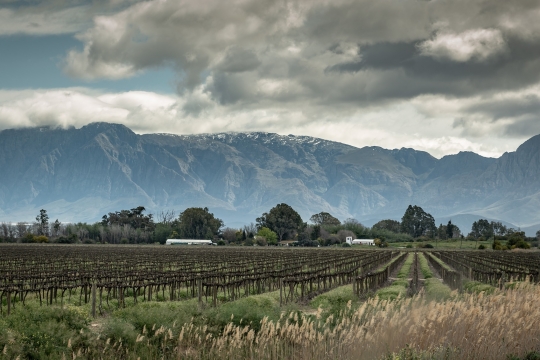Energy prices (for fuel and electricity) and energy price volatility impact wine prices. In the long run, we find a clear link between fuel and wine prices, implying that the two markets positively influence each other to the extent that a change in fuel prices influences wine prices. In the short run, we find that past volatility from wine prices as well as shocks from other markets, i.e., fuel and electricity, influence the current wine prices.
In the recent past, the South African wine industry has experienced a sharp increase in input production cost, to levels where over a thousand farmers shut down operations (VinPro, 2017). Out of a total of 3,145 remaining grape farmers, 13% are producing at sustainable income levels, 44% are operating at a break-even point, and 40% are operating at a loss. Additionally, the area under vine cultivation has been reduced drastically, from 102,146 hectares in 2006 to 95,775 hectares in 2016 (VinPro, 2017). Even though energy cost has been highlighted as one of the key contributors to the struggles in the industry, no empirical study has been conducted to evaluate the claim. This study investigates whether or not energy prices and price volatility influence wine prices. We ask the research question “to what extent do energy price and price volatility influence wine prices?” We employ an econometric approach and consumer price index series for fuel, electricity and wine for the analysis. The knowledge about our findings provides stakeholders and policymakers tools that will aid in implementing appropriate hedging strategies. The impact of the volatility of both fuel and electricity prices on wine prices is potentially important, because it can render wine prices unstable, enlarging market uncertainty and risk for both the consumers and producers of wine. It can also impact negatively on the government’s revenue and the South African economy at large.
Therefore, we suggest that policymakers should not only formulate income and farm price programmes but also should establish appropriate hedging facilities to mitigate the associated risks. For example, the volatility transmission relationships between energy and wine markets might help investors make optimal business decisions. Another way would be for policymakers to promote the use of alternative energy sources. Further, we report that fuel and wine prices move together; hence, policymakers should take into account the connection between energy and agricultural markets. Additionally, wine stakeholders could benefit from building their strategic energy reserves, as the fuel and electricity reserve is essential for those players that rely heavily on government-supplied energy. Taking these measures into account might alleviate risks associated with price volatility.

